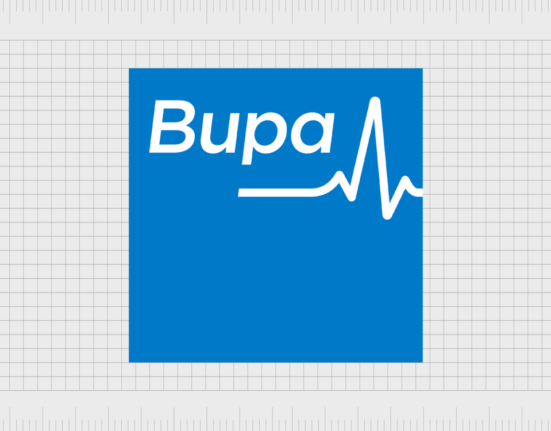Taking charge of your health goes beyond routine check-ups. It’s about having those honest, sometimes tough conversations with your doctor that can truly empower you in your healthcare journey. Let’s dive into the intricacies of enhancing your relationship with your primary care provider and advocating for yourself.
Are you actively engaged in managing your health? Do you prioritize regular appointments and pay attention to any changes in how you feel? Are you comfortable discussing intimate topics like sexual health and emotional well-being with your doctor? Or do you find yourself shying away from certain discussions due to busyness or discomfort?
Your interactions with your doctor are a crucial aspect of maintaining good health, yet many people hold back due to various reasons such as hesitation, embarrassment, or neglecting their own well-being. Taking a holistic approach means carving out time for self-care, fostering a strong rapport with your healthcare provider, and being willing to engage in meaningful dialogues regarding your health concerns.
Empowering Yourself as a Patient
Being proactive about your health involves actively participating in decision-making processes concerning your well-being. If something is bothering you or affecting your daily life, it’s vital to prioritize yourself by scheduling an appointment with your doctor. Coming prepared for these appointments, especially when dealing with complex health issues, equips you to ask pertinent questions and gain insights into your condition, making you an active participant in determining the way forward.
Navigating Health Information Online
In today’s digital age, the internet offers a wealth of medical information at our fingertips. However, striking a balance between being informed and overwhelmed by excessive research can be challenging. Driven by curiosity or concern, individuals often turn to online sources like Google or social media platforms for medical advice.
Psychologist Carly Dober warns against this practice:
“People might self-diagnose based on online information which can have serious consequences… It’s crucial to be discerning about where you seek medical information.”
She emphasizes the importance of relying on accredited sources like government health bodies rather than potentially misleading content on social media platforms.
Approaching Sensitive Topics
Discussing sensitive issues during medical appointments can be daunting for many individuals. Dr. Gillian Deakin stresses the significance of sharing comprehensive medical history—both personal and familial—with healthcare providers for optimal care delivery. Building trust through open communication lays the foundation for addressing delicate matters effectively.
Dr. Deakin recommends jotting down concerns before appointments if certain topics make you uneasy:
“Writing down queries ensures nothing is left unaddressed.”
Additionally, role-playing scenarios or bringing along a supportive individual can aid in navigating challenging conversations during consultations.
The Importance of Regular Check-Ups
Annual check-ups are not just reserved for times of illness; they play a key role in preventive care as well. Dr. Deakin underscores the necessity of regular visits for vaccinations, cardiovascular assessments, and monitoring hereditary risks based on family history. Early detection through routine screenings enables timely intervention that could potentially save lives.
Seeking Additional Support
Receiving a new diagnosis can be overwhelming; continuous follow-up visits may be needed to fully grasp treatment plans and lifestyle adjustments required post-diagnosis. Connecting with patient support groups specific to one’s condition fosters understanding and camaraderie among individuals facing similar challenges.
Ensuring Effective Communication
Sometimes patients may feel unheard despite their efforts to convey their concerns adequately—this rings particularly true for women whose symptoms might not receive due attention initially. Dr. Deakin advises presenting facts clearly without preemptive diagnoses while also acknowledging realistic limitations within standard consultation periods.
Choosing the Right Healthcare Provider
Not all general practitioners (GPs) specialize across all areas of medicine; thus referring patients to specialists when necessary is part of comprehensive care provision by GPs according to Dr.Deakin.Guidance from multi-disciplinary clinics offering varied healthcare professionals under one roof facilitates coordinated holistic approaches towards wellness maintenance.
Focus on Preventative Health Measures
Proactively supporting overall well-being involves making healthy lifestyle choices such as engaging in physical activities one enjoys consistently while prioritizing balanced nutrition rich in whole foods.Also,sufficient restorative sleep plays an essential role alongside stress management tactics given daily stressors encountered.Blood tests serve as valuable tools enabling early disease detection through physiological markers.Scheduled testing allows early intervention via lifestyle modifications before more invasive treatments become necessary.Analysis by Naturopaths enhances test result comprehension fostering personalized therapeutic strategies tailored toward achieving optimal health outcomes.
Prioritizing Self-Care
Embracing an active role in nurturing personal wellness requires effective communication,and trust-building within patient-healthcare provider relationships.Empowerment lies not only in seeking second opinions but also selecting compatible medical practitioners aligning closely with individual needs.Leveraging knowledgeable healthcare professionals’ expertise ensures informed decisions regarding treatment options ultimately leading towards enhanced quality-of-life measures.









Leave feedback about this